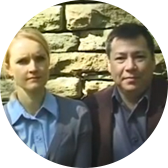Many people avoid reaching out to an attorney because of cost concerns. This is especially common if they're already dealing with frustrating car repa...
Florida Lemon Law Attorneys
Lemon Law FAQs
What Documents Do I Need to Provide to Prove that My Vehicle Is a Lemon in the State of Florida?
Technically speaking, you don’t need any documents to file a Lemon Law claim in Florida; if your dea...
read moreTechnically speaking, you don’t need any documents to file a Lemon Law claim in Florida; if your dealer will not provide you with copies, your attorneys can obtain any necessary documents on your behalf. However, any repair records you have, documents related to the sale of the vehicle, and documents detailing incidental costs will all be useful.
If you’re unsure what documents you even have, reach out to us so we can review your case free of charge. We can help you make sense of the paperwork you already have and help to obtain any additional documents that may support your case.
How Much Time Do I Have to Pursue a Lemon Law Case in Florida?
The Florida Lemon Law protects consumers from lemons for two (2) years from the purchase or lease da...
read moreThe Florida Lemon Law protects consumers from lemons for two (2) years from the purchase or lease date of a new motor vehicle. After this Lemon Law Rights Period, you have an additional sixty (60) days to file an arbitration request. Thus, you have two (2) years and two (2) months after purchasing or leasing a vehicle to file a Lemon Law claim in Florida.
Additionally, the Magnuson-Moss Warranty Act provides consumers in the State of Florida with five (5) years to file a claim, starting from the date the manufacturer breached its warranty. For lemon vehicles, this often translates to five (5) years from the first failed repair attempt.
How Do I Calculate a Refund Under the Florida Lemon Law?
Calculating a refund under the Florida Lemon Law is very straightforward. You’re entitled to the amo...
read moreCalculating a refund under the Florida Lemon Law is very straightforward. You’re entitled to the amount you’ve paid for your vehicle. This includes sales tax, finance interest, and other costs you’ve paid or accrued for the vehicle, including incidentals. However, the manufacturer is entitled to withhold a portion of the refund to offset the time you were able to use the vehicle without issue.
To calculate the maximum amount of the offset, take the vehicle’s purchase price, divide it by 120,000, and multiply the result by the number of miles driven up to the point that the case goes to arbitration. Even if the case ultimately goes to court, the offset is still limited by the vehicle’s mileage at the start of arbitration.
As an example, let’s consider a lemon vehicle with a purchase price of $60,000, including all additional costs. And let’s say the owner drove the car 8,000 miles by the time their case went to arbitration. Thus, the maximum offset would be $60,000 ÷ 120,000 x 8,000 = $4,000. So, assuming the vehicle was fully paid for, the refund would be $60,000 – $4,000 = $56,000.
Why Should I Hire a Lemon Law Attorney in the State of Florida?
Simply put – to level the playing field! Car manufacturers represent some of the world’s biggest cor...
read moreSimply put – to level the playing field! Car manufacturers represent some of the world’s biggest corporations. They have unlimited resources, which makes going it alone very difficult. Therefore, rather than trying to go toe to toe with such a big corporation, you may retain the experienced attorneys at Krohn & Moss, Ltd. Consumer Law Center® who will fight for your rights and who will only be paid if you get a recovery!
Plus, if you hire Krohn & Moss, Ltd. Consumer Law Center® and do not win your case, we will not send you a bill for our time. We only get paid if you do!
How Do I File a Lemon Law Claim in Florida?
If your vehicle still has a defect after a reasonable number of repair attempts, you need to provide...
read moreIf your vehicle still has a defect after a reasonable number of repair attempts, you need to provide the manufacturer with written notice of defect via certified, registered, or express mail. Most consumers have a Florida Lemon Law attorney, like our experienced team at Krohn & Moss, Ltd. Consumer Law Center®, do this on their behalf.
After providing notice, you need to grant the manufacturer with one final attempt to repair the defect. If this final attempt fails, consumers (or their attorneys) must submit a Request for Arbitration Form to the Department of Legal Affairs with all available documents that support the claim.
An arbitration board will then review the case and issue a ruling. If you are dissatisfied with the ruling, the next step is to file your claim with the courts.
Both the Florida Lemon Law and the federal Lemon Law include fee-shifting provisions that require manufacturers to pay the legal fees of consumers who win their Lemon Law case in court. Plus, our firm only charges for our services if we succeed in collecting compensation for our clients.
So rather than trying to file your Lemon Law claim by yourself, let us help. Having a knowledgeable attorney in your corner greatly increases your chance of success. And knowing that you’ll never pay out of pocket for our help should make the decision to contact us for a free case review an easy one to make.
Do Recalls Counts as Defects Under Florida’s Lemon Law?
Yes, when a manufacturer issues a recall, they are acknowledging that the affected vehicles are defe...
read moreYes, when a manufacturer issues a recall, they are acknowledging that the affected vehicles are defective. But the manufacturer still must be given a “reasonable number” of attempts to repair the defect before consumers can seek compensation under the Florida Lemon Law.
It’s also important to remember that the Florida Motor Vehicle Warranty Enforcement Act only applies to defects reported within the first 24 months of ownership. So recalls that are announced outside of this Lemon Law Rights Period will not be covered by the law.
That said, other laws, such as the Magnuson-Moss Warranty Act, can hold manufacturers responsible if they fail to repair defects that prompt a recall.
Do You Have A Lemon?
We’ve put together a simple, effective evaluator to help you determine whether or not you have a lemon.
Do I have a lemon? Take the Lemon Test. It Takes Only 60 seconds!
Staying informed on recent recalls is half the battle. Check back often to ensure you’re up to date. If your vehicle has a reported defect, contact us today for a free case review.
Krohn & Moss, Ltd. Consumer Law Center® is pleased to comply with state regulations concerning client statements and testimonials:
In order for you to see our client video or read our client statements, please click the green button below. You will be taken directly to the video or client statements.
If you are interested in viewing information about the lawyer/firm’s past results and testimonials about the lawyer/firm, please read and acknowledge the information below.
The information in this section contains information about the lawyer/firm’s past results, testimonials about the lawyer/firm, and statements regarding the lawyer/firm’s quality. The information has not been reviewed or approved by Bar Associations of the states in which the law firm practices.
The facts and circumstances of your case may differ from the matters in which results and testimonials have been provided.
All results of cases handled by the lawyer/firm are not provided and not all clients have given testimonials.
The results and testimonials provided are not necessarily representative of results obtained by the lawyer/firm or of the experience of all clients or others with the lawyer/firm. Past results are no guarantee of future results. Every case is different, and each client’s case must be evaluated and handled on its own merits.
The testimonials or endorsements do not constitute a guarantee, warranty, or prediction regarding the outcome of your legal matter.




